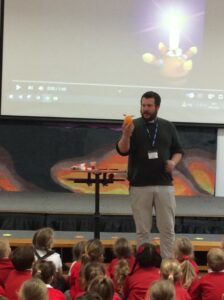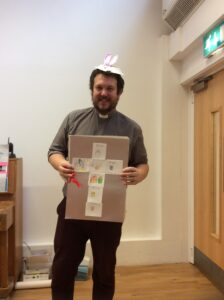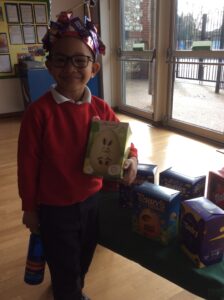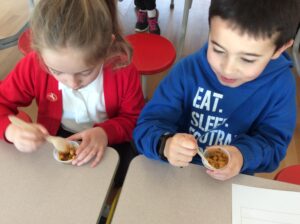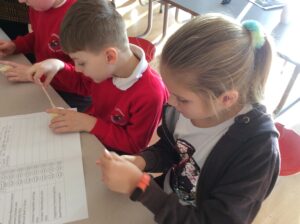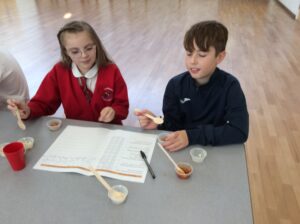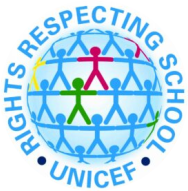SMSC
SMSC
Spiritual, Moral, Social & Cultural
Here at Lyminster we believe SMSC runs through every single thing that we do, and is central to our mission to nurture and inspire the future citizens of the world. As adults in our school community, we continuously model, encourage and teach the positive interactions, care and mutual respect that come with being a ‘Lyminster Dragon’. Our Rights Respecting ethos and our belief in fundamental British Values, are clear and ever-present in our school through our 3 Be’s: Be Proud of your Individuality; Be Respectful and Kind; Be an Inspiration, and it is this deep-rooted culture and character of a school that we believe makes the greatest difference to shaping the next generation of citizens.
We recognize that a sense of belonging, and strong relationships between everyone in the community, are essential to help the children develop and live these values. As well as our uniform, we have a House system where children can semi-competitively work to earn points towards a communal award, as well as participate and compete together in sporting events. Our weekly Celebration Assemblies are quite the centre-point of our belonging and culture, as we gather together to celebrate each other’s achievements, which include certificates linked to our values and the children’s SMSC development, such as our Growth Mindset Award. We have an array of ‘traditions’ which help cement the sense of belonging, such as the lap of honour in these celebration assemblies, ‘The Big Day Out’ in June (which also offers an enriching cultural experience), and The Great Lyminster Water Fight!
Spiritually, we have strong links to local churches and are building relationships with other faith communities such as our nearest synagogue and our nearest mosque, both of which we visit regularly. Our assembly programme, which focusses on the articles of the United Nations Convention on the Rights of the Child, routinely include moments of personal and spiritual reflection, particularly as they leave the Hall to a given piece of music, with a prompt to stimulate their thinking. Culturally, we recognize the particular need in our context to increase our children’s cultural capital and broaden their range of life experiences, and are therefore strongly committed to offering a wide range of enriching experiences connected to their learning journeys, which also of course enhance their learning and engagement. For example, our children visit a working Saxon village as part of their learning on the Anglo Saxons, conduct Geography fieldwork on the beach and in the South Downs, and visit the theatre in preparation for putting on their own show-stopping performance.
In terms of the curriculum, SMSC threads through all curriculum learning, and you can dive deeper into this by following the different curriculum links on this website. Two absolutely central subject domains to the chjildren’s SMSC developments are PSHCE and RE, and we have included detailed information on these curricula below.
The children are tracked in terms of the extent to which they live up to our values, and this is summarised in writing and shared with parents and carers annually. We also track friendship groups by using research-informed ‘sociogramming’ tools which allow up to identify where interventions may be required to help children continue to thrive. Examples of interventions can include discussions with adults, using comic-strips to unpick tricky social situations, therapeutic interventions led by our Learning Mentor, ‘Circle of Friends’ to integrate children more closely within a class. Hello & Goodbye Groups to help children self-regulate and to talk through issues, Individual Behaviour Plans using the Zones of Regulation as their basis, and our Peer Mentorship scheme.
RE
Easter Celebrations
Religious Education
Our Early Years curriculum focuses on ‘Understanding of the World’, including ‘People in the Community’ and ‘The World’. Children in Reception find out about similarities and differences between themselves and others, and among families, communities and traditions. In Key Stage 1 and 2 we aim to ensure that all pupils can describe, explain and analyse beliefs and practices, recognising the diversity which exists within and between communities. In addition to this we encourage the pupils to identify, investigate and respond to questions posed by sources of wisdom found in religions and world views.
To enhance their understanding we ask the pupils to explain reasonably their ideas about how beliefs, practices and forms of expression influence individuals and communities. We link our aims for RE to our school aims of Confidence, Community and of Love of Learning, as well as the values we share as a Rights Respecting School. We ensure the pupils are able to articulate beliefs, values and commitments and explain reasons why they may be important in their own and other people’s lives.
As part of our current R.E. curriculum we ask the big questions at the beginning of a topic. We encourage the pupils to question, explore and research different world faiths inspiring them to lead their own learning. To make the curriculum engaging we invite visitors in to teach the pupils in an engaging way. This year we have experienced:
- Bollywood dancing; when the pupils learnt a dance and key facts about Diwali.
- Diwali workshop
- Visitors for World Faith Day – when all the pupils were given the opportunity to explore and ask their own questions to find out more about three world faiths in one day: Christianity, Islam and Hinduism.
- Regular visits to the local church in our community to share three key dates in the Christian calendar: Harvest, Christingle and Easter.
Understanding Christianity
To enhance our current R.E. curriculum, follow the Jigsaw resource ‘Understanding Christianity’ to deliver a deeper understanding of Christianity as a world faith within our school. This resource helps pupils to understand and explore how Christian belief and practice are shaped, makes connections with other areas of belief and understanding, and encourages reflection, evaluation and application.
RE Subject Ladder
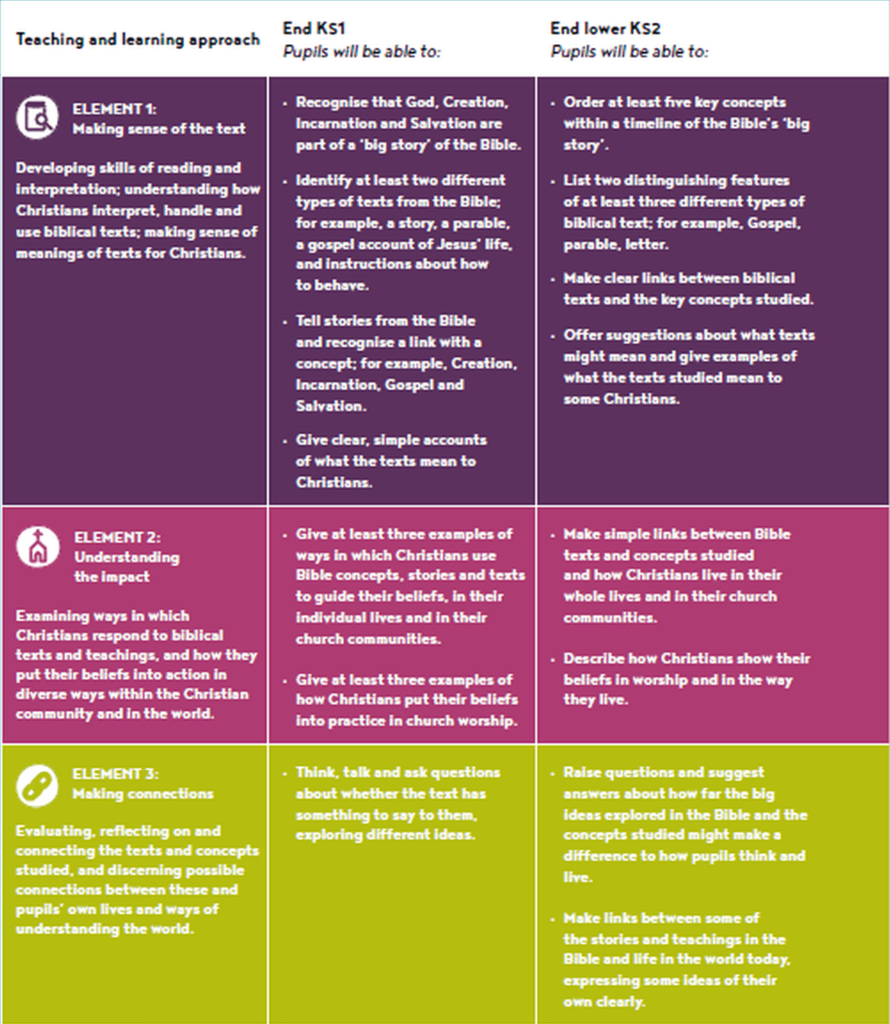
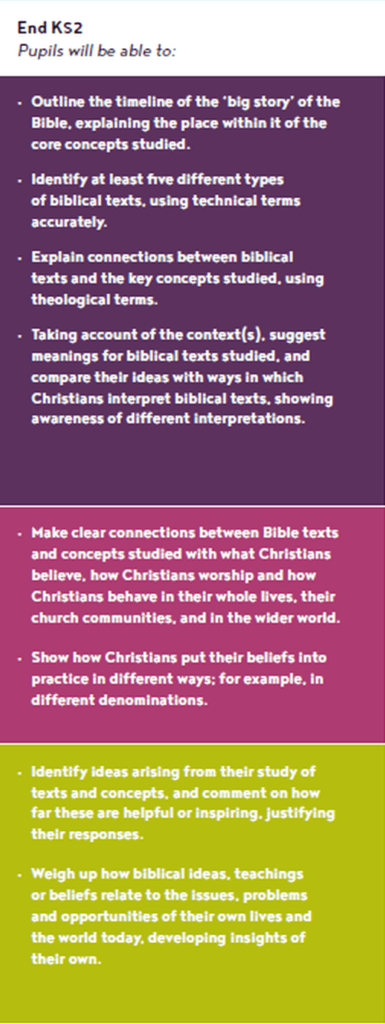
PSHCE
Personal, Social, Health & Citizenship Education
What is this curriculum trying to achieve, and how does this relate to our overall aims and ethos?
Through the PSHCE curriculum we aim to explicitly teach and develop the skills and dispositions which will enable the children to be confident, kind and respectful citizens. A large part of this is learning to be safe and healthy (and to make safe and healthy decisions), as well as learning to take into account the needs and viewpoints of others. As they achieve these skills and objectives we know that the children will thrive as shining examples and inspiration to the rest of the community.
How is the curriculum actually implemented – how do we ensure progression, retention, and what does teaching and learning in this subject actually ‘look’ like?
We follow the Jigsaw scheme of work, which we chose for its focus on mindfulness and on structured group discussion, both of which we felt would be beneficial for our children and in meeting our curriculum aims. The scheme breaks down learning in a sequenced and progressive way, as the children revisit themes such ‘Relationships’ or ‘Dreams and Goals’ each year and in increasing depth. The spiral nature of the curriculum itself promotes retention, as well as teachers making links across lessons by referring back to previous lessons or making links explicit.
Lessons typically begin with a moment of reflectiveness, such as a guided visualisation or meditation exercise. This will then usually move into a ‘Circle Time’ or structured discussion, where children are encouraged to explore, discuss and even debate a theme, openly and respectfully. The children can then consolidate their learning with an activity designed to help them apply the theme to themselves and their own lives, before the children come back together to reflect and share their progress.
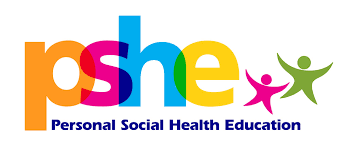
How is this curriculum adapted to meet the needs of different children and groups of children, particularly those with SEND?
The centrality of open discussion to the learning in PSCHE, and our emphasis on personal reflection and application, is intentionally as inclusive as possible. Where children may have barriers to communicating in this forum, support is identified in their Individual Learning Plans, which would also be in place in PSHCE lessons. Where there are conceptual or learning barriers, teachers will select from a menu of support and adaptation options which include visuals, drama and role play, or relating more to the child’s personal experiences.
For children who grasp the key concepts earlier or more readily than others, their learning can be extended with more open or abstract questioning, or applying the theme in less straightforward (or even morally ambiguous) contexts. Teachers will manage this through bounce-back questioning or adapting how the task is framed for these children in particular. For example, when putting together a Class Charter, more able children can be challenged to consider if and when there may be justifiable exceptions or whether certain rules infringe on people’s rights and freedoms.
How is progress against, and retention of, this curriculum assessed? How are any gaps in learning then addressed?
The Jigsaw scheme includes criteria and descriptors for achievement against the objectives, including what this may look like if children are ‘Working Towards’ or ‘Exceeding’ age-related expectation. Teachers refer to these formatively as they work through each unit of learning with the class, and make annual summative judgements which are reported in writing to parents and carers. Where gaps in learning emerge teachers may re-teach or re-emphasise key aspects to the whole class, to groups or to individuals as appropriate, model thinking by ‘wondering aloud’ or highlighting particular responses by other pupils, and/or offer feedback on the learning tasks completed. A summary of any remaining gaps is handed over verbally to the next class teacher at the end of the year, also, which can be focussed on in the Autumn Term.
Rights Respecting School
‘UNICEF UK’s Rights Respecting Schools Award seeks to put the UN Convention on the Rights of the Child at the heart of a school’s ethos and culture to improve well-being and develop every child’s talents and abilities to their full potential.’
Each week in school there is an assembly all about the children’s rights in accordance with UNICEF and the Rights Respecting School Award. Each week there is a clear focus that supports the implementation of articles that pupils are able to discuss in class. The articles that are shared are taken directly from the 42 articles of the UN Convention on the Rights of the Child.
To ensure the pupils are able to continue to learn about their rights and as we cannot be in school at the moment, each week there will be a different focus/article on this page. There will also be a PowerPoint to share as a family and for children to continue to learn about their rights.
If you choose to complete any creative work from the PowerPoint, please share on the RRSA Facebook community group, on Twitter using hashtag #RRSA and @LyminsterSchool.

